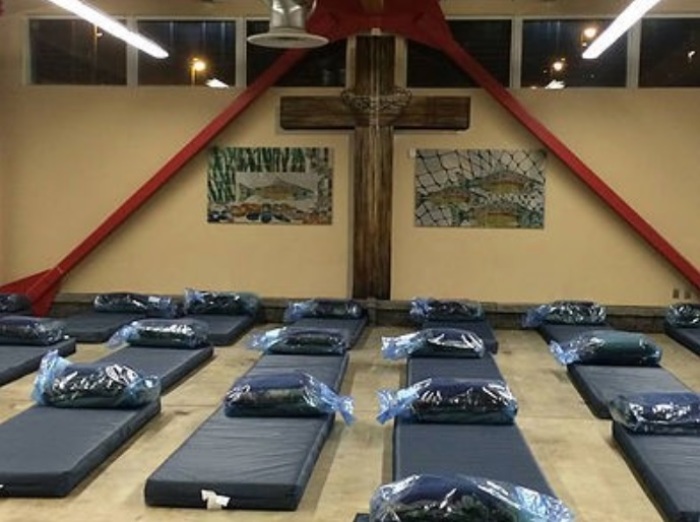Christian homeless shelter won't be forced to place men in women's area in Anchorage

The city of Anchorage has ended its legal action against a faith-based homeless shelter that forbids males from entering spaces reserved for women who are victims of domestic violence.
Following an August loss in federal court, officials in the most populous Alaskan city have formally dropped a February 2018 complaint with the Equal Rights Commission against Downtown Hope Center, which had referred an inebriated man — who identified as a woman — to a hospital to receive care and paid for his taxi to get there. The trans-identified man subsequently filed a complaint saying that the center disallowed him from staying at the shelter where he would have been sleeping next to abused women.
Thus, with the city's move, the court decision in favor of the homeless shelter in August is permanent.
Downtown Hope Center was represented by Alliance Defending Freedom, a Christian legal nonprofit firm specializing in religious liberty and First Amendment cases.
“All Americans should be free to live out their faith and serve their neighbors — especially homeless women who have suffered sexual abuse or domestic violence — without being targeted or harassed by the government,” ADF Senior Counsel Kate Anderson said Monday in response to the development.
“This is the right outcome. Downtown Hope Center serves everyone, but women deserve a safe place to stay overnight. No woman — particularly not an abuse survivor — should be forced to sleep or disrobe next to a man.”
The Anchorage commission had been investigating whether or not the shelter had violated the city's equal protection law which prohibits discrimination on the basis of the category of "gender expression." The center maintained that it had the legal right to set policies on who could and could not stay in its facility.
As part of the terms of the settlement, the municipality of Anchorage will pay $100,000 to Downtown Hope Center to cover their legal expenses, according to Alaska Public Media Monday. The shelter is also allowed to continue stipulating that its overnight spaces be female-only.
The city reportedly opted to scrap the complaint because the court indicated that it did not agree with their interpretation of the law and wanted to avoid an expensive legal battle. From the commission's viewpoint, the dispute was about whether the shelter must adhere to “public accommodations” in the city’s code.
The settlement is a "consent decree," which only applies to the Downtown Hope Center, "but could open the door to similar arrangements with other organizations in the future," APM reported.
ADF attorney Ryan Tucker stressed that the Hope Center should have never been subjected to the strict application of the local ordinance.
“There were actually exemptions built into the local ordinance that made clear that the Hope Center was not subject to the ordinance,” Tucker said.
“So there was this misapplication that continued to be made, again, forcing us to file the lawsuit.”
At the root of this and other conflicts occurring around the country over transgender issues is the legal redefinition of "sex" to mean something other than its biological basis. Next Tuesday, the concept of "gender identity" — an amorphous term that is increasingly appearing in law as a designated civil rights category which many argue erases hard-won sex-based protections — will be litigated before the U.S. Supreme Court in R.G. & G.R. Harris Funeral Homes Inc. v. Equal Employment Opportunity Commission.




























